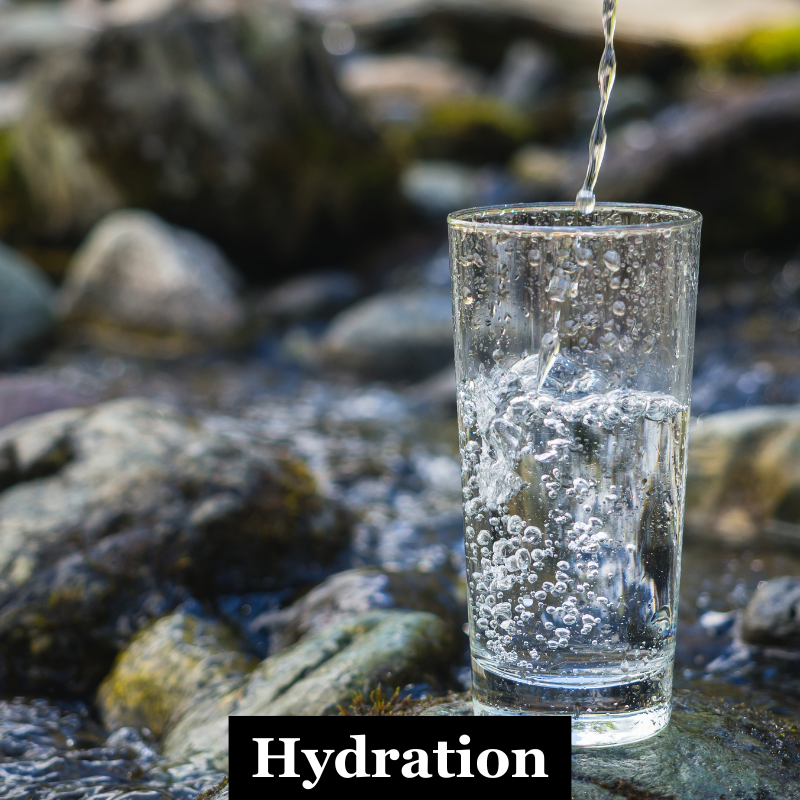The Hidden Hunger Signal That’s Actually Dehydration

I sometimes wonder why I get hungry at weird times. I think, "Am I more active than normal, or did I skip breakfast?" Could my brain be messing up body signals and thinking I'm hungry when I'm not? Hunger's causes are diverse and abundant.
One simple and common cause can be dehydration. I've been drinking more water than normal since it's been above 100°F this summer. Talking way too much. I'm not drinking enough, it seems. It is easy to underestimate just how closely related dehydration and hunger actually are to one another. This summer, a nagging hunger gnawed at me as I opened the fridge and cupboard doors, only to find nothing that sounded appetizing.
The connection between hunger, overeating, and gaining weight is clear. I'm working to discover why we develop these habits and how to solve the problem. Dehydration can trick you into thinking you're hungry. A misinterpreted signal in the brain has the power to deceive the body. It's basically begging for electrolytes and water.
Even a little dehydration can affect the body.
A tiny 1-2% decrease in hydration may affect mood, energy, and memory. Why does this happen? There's a region in the brain that regulates both hunger and thirst, and sometimes the signals get crossed. (My theory: Food also contains small amounts of water.)
Avoid sugary sports drinks. I constantly see patients with sugary drinks like Gatorade and Powerade, thinking they are hydrating correctly. But they raise blood sugar and lead to energy crashes.
The evidence and data show mineral-rich water (like water with sodium, magnesium, potassium and calcium) boosts hydration markers by as much as 2-3% over plain old water.
The absence of these minerals, which play a vital role in assisting the body to keep water, results in the water flowing directly through your system and into the toilet, failing to ease thirst, reduce hunger, or positively affect your mood and cognitive functions.
Being dehydrated might seem minor, but lots of daily problems unknowingly makes it worse.
To name a few: Coffee, Alcohol, Processed foods and stress all cause worsening dehydration.
Then, we believe tap, filtered, or bottled water hydrates us, but it lacks essential minerals. Are you staying hydrated?
Then we question the afternoon snack cravings, the extra daily calories, and the thousands of weekly calories. Fatigue and brain fog mask the real reason for cravings for sweet and salty treats, which is a need for salt.
The simple solution
Start your day by drinking an enormous glass of mineral water. Or tap water with a pinch of salt. I use Himalayan salt because it contains several minerals.
Another effective habit would be to test that nagging hunger first. When hunger strikes, drink a glass of water with minerals and then wait 10 minutes. Perhaps it was thirst if hunger wasn't the issue.
Skip the sports drinks. Flavored water with added salt it the way to go. Wedge of lemon, maybe some slices of cucumber or strawberry for a fruity burst blast option. Studies comparing sugar-sweetened sports drinks to mineral-enhanced water show better hydration markers with minerals alone minus the blood sugar rollercoaster.
Takeaway
Dehydration is a master of disguise. It can show up as anxiety, hunger or fatigue. Most people, even those who think they hydrate well, fall for the trap and eat when they should drink. So, it's not a shock that even a tiny 2% drop in hydration can crush your physical performance by a massive 20%. It all makes sense considering your brain's 75% water. Mood, memory and energy fall by the wayside if the body can’t hold on to the water. It’s like a lock and key system. Water is the key, but without minerals, the lock doesn’t turn. You end up with a pocket full of keys that never open the door. Hydration isn’t about drinking more, it’s about drinking smarter. Let’s not mistake thirst for hunger, and you’ll reclaim energy, clarity, and control.